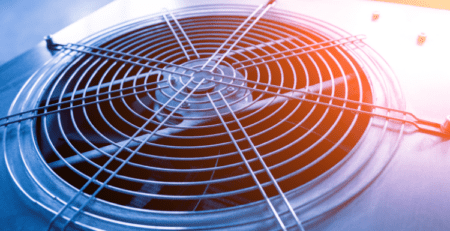What does HEPA mean?
HEPA stands for High-Efficiency Particulate Air. HEPA filters are designed to trap microscopic particles in the air that would otherwise be inhaled by people, pets, and other animals.
What is a HEPA filter?
A HEPA filter is an air purifier that traps microscopic particles, such as dust and bacteria. These filters are commonly used in commercial buildings for clean air. The EPA and ISO 29463 dictate the standards to measure the efficiency of air cleaners and HEPA filters against their specific task: trapping microscopic particles. All air cleaners should meet this standard under the EPA’s standard for clean air filters and the ISO at all times. As you may have guessed from the name, a HEPA filter traps more than just large particles; it also traps smaller ones too.
How Do HEPA Filters Work?
A HEPA filter has a series of openings in it known as ‘pores’. These pores are so fine that they can trap the smallest particles in air, including pollutants like dust and other contaminants that can make your home or office less healthy. When you turn on your HEPA filter, this allows the filter to get rid of any pollutants in the air and most biological material, including a large proportion of the tiny SARS Coronavirus that causes Covid-19.
What are the pros and cons of a HEPA filter?
HEPA filters are often used in homes and offices to trap contaminants like dust, pollen, bacteria, and even some viruses. They can also be found on cars to help reduce smog. HEPA filters will remove or lessen the effects of these harmful particles in your home or workplace so that you don’t have to worry about them as much. They are also beneficial because they can filter out many thousands of microscopic particles per second. This is beneficial for people with asthma or those who work around a lot of pet dander; they help prevent them from getting sick more easily.
Additionally, they effectively clean large amounts of polluted air quickly and efficiently. They use a filtration system that allows them to capture smaller particles through channels in the filter while trapping larger particles inside the filter. This prevents any pollutants that would have been let into your body without it from entering your nose or throat, causing problems like asthma attacks or respiratory illnesses.
The cons are associated principally with the high energy costs to drive the air through the filters and increased risk of potential latent biological hazards to consider in maintenance and replacement, as compared to UVC disinfection which destroys microbes.
Why is it necessary to remove small particles from the air?
As you may have guessed from the name, a HEPA filter traps more than just large particles; it also traps smaller ones too. These smaller particles can be found in your home or workplace if you aren’t cleaning on a regular basis.
The small particles that HEPA filters can remove are important to remove because they contribute to things like: – Increased asthma and other respiratory problems – respiratory irritation – decreased productivity – interferes with the air quality in buildings and offices.
Can I clean a HEPA filter?
HEPA filters can be cleaned, to do this you should first:
- Turn of the air filter or portable device
- Let the device sit and settle for approximately 72 hours to allow most all microbes to die-off
- Carefully move the device to a dedicated room not frequented by persons and ideally used for decontamination purposes
- While wearing correct PPE, remove the HEPA filter from the device and rinse it with a hose over an effluent-rated drain
You can then let the HEPA filter dry by placing it in a safe open area not frequented by people where there is plenty of air circulation. Remember not to wash your HEPA filter with harsh chemicals, such as bleach or detergent, because these chemicals will damage the pore channels in the HEPA filter and make it ineffective. HEPA Filters should last 6-12 months if used in conjunction with a series of pre-filters to reduce particulate load. Disposal should be by a licenced company, and typically incineration is the best method.
Where are HEPA filters used?
HEPA filters are often used in:
– Hospitals and medical facilities
– Industrial facilities
– Laboratories
– Schools and other educational institutions
– Homes and residential buildings
– Businesses
These filters are said to be most beneficial in hospitals, schools, labs and homes. HEPA filters will trap any particles to the normal certification of 0.3 microns and, indeed, can be down to 0.15 microns, which is much smaller than the 1 micron standard for filtration. This means that these filters will be able to remove more contaminants than a regular air filter.




Leave a Reply